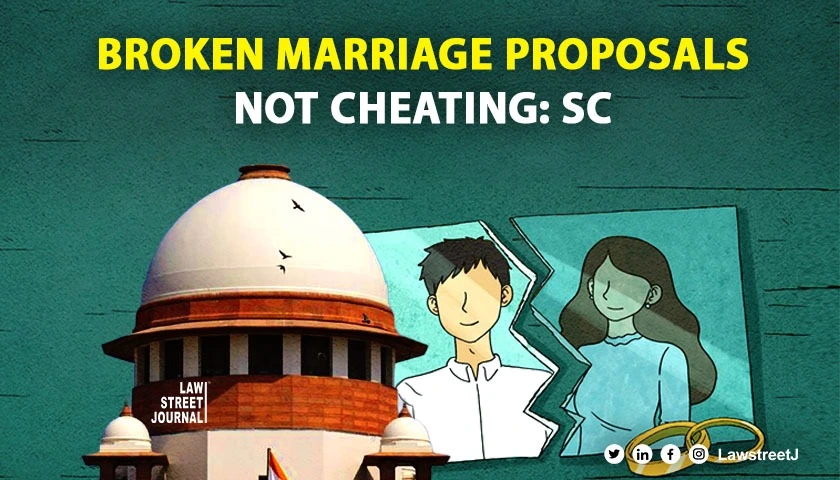NEW DELHI: The Supreme Court has provided relief to a man facing prosecution for not marrying the girl after asking her father to book a marriage hall, saying a marriage proposal not reaching the desired outcome does not always mean that it would amount to an offence of cheating under the Indian Penal Code.
A bench of Justices Sudhanshu Dhulia and Prasanna B Varale allowed an appeal filed by Raju Krishna Shedbalkar against the Karnataka High Court's order which refused to quash the proceedings under Section 417 of the IPC.
The bench felt, "There can be multiple reasons for initiating a marriage proposal and then the proposal not reaching the desired end. It may in a given case involve cheating; it is possible theoretically, yet in order to prove an offence of cheating in such cases prosecution must have reliable and trustworthy evidence in order to first prosecute such a case."
In the case, the High Court found since the appellant alone had induced the girl's father to book a marriage hall, therefore, there is prima facie material which makes out a case under Section 417 IPC.
Also Read - POCSO case after marriage refusal: Kerala HC quashes case after parties marry
"We are afraid that the reasoning by the High Court upholding the proceedings under Section 417 is patently incorrect," the bench said.
"Time and again, this court has reiterated that in order to make out an offence under cheating the intention to cheat or deceive should be right from the beginning. By no stretch of imagination, this is even reflected from the complaint made by the informant," the bench added.
The prospective bride lodged an FIR against six persons-- appellant and his family members -- stating that she is M Tech graduate and was working as a lecturer. In the search for a suitable bridegroom, elders from her family found the present appellant.
Both were thereafter talking to each other on phone and her father had also given Rs 75,000 in advance for the marriage hall, but the marriage never took place and she learnt from a newspaper report that the appellant has in fact married someone else.
After examining the facts of the cade, the bench said, "We do not see how an offence even under Section 417 of IPC is made out against the present appellant. There is no such evidence."
The High Court had allowed the plea for quashing of the proceedings under Section 406, 420 and 417 against members of the appellant's family.
It had rejected the appellant's plea filed under Section 482 of the Criminal Procedure Code with regard to the offence under Section 417 of the IPC.

















